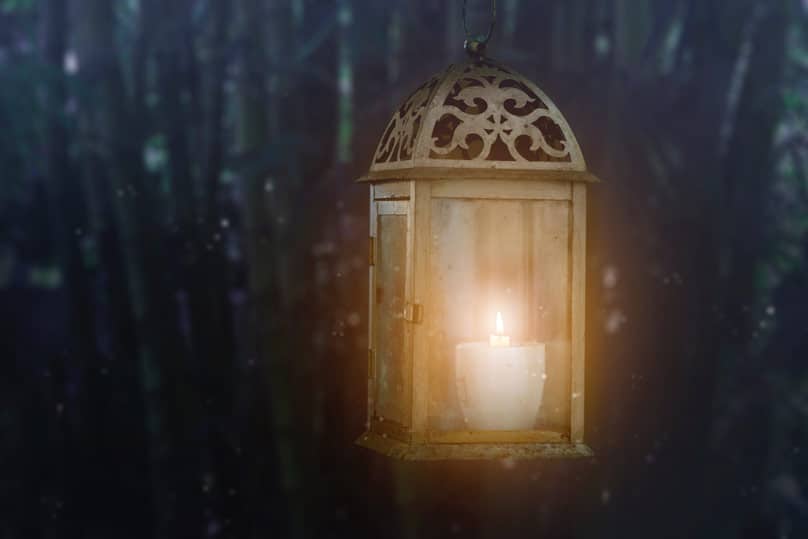
Jesus tells, it is no secret, weird and difficult parables. One of them is the Parable of the Ten Virgins:
Then the kingdom of heaven shall be compared to ten maidens who took their lamps and went to meet the bridegroom. Five of them were foolish, and five were wise. For when the foolish took their lamps, they took no oil with them; but the wise took flasks of oil with their lamps. As the bridegroom was delayed, they all slumbered and slept. But at midnight there was a cry, ‘Behold, the bridegroom! Come out to meet him.’ Then all those maidens rose and trimmed their lamps. And the foolish said to the wise, ‘Give us some of your oil, for our lamps are going out.’ But the wise replied, ‘Perhaps there will not be enough for us and for you; go rather to the dealers and buy for yourselves.’ And while they went to buy, the bridegroom came, and those who were ready went in with him to the marriage feast; and the door was shut. Afterward the other maidens came also, saying, ‘Lord, lord, open to us.’ But he replied, ‘Truly, I say to you, I do not know you.’ Watch therefore, for you know neither the day nor the hour. (Matthew 25:1-13)
This is one of Jesus’ parables of Judgment (it will be followed by the much more famous and easy-to-understand Parable of the Talents and the Parable of the Sheep and the Goats). And it is placed in Matthew’s gospel during Holy Week as the preface to his anointing by Mary of Bethany (involving oil, by the way) and followed hard by the events of the Passion just two days later.
”So what?” you ask.
So this: a Gospel is a Passion narrative with a long introduction. The only reason a Gospel exists is to tell us the Big News that God, having become Man, has been crucified, buried, raised from the dead, and ascended into heaven, from whence he shall return in judgment on the Last Day. That’s the news the evangelists have to tell and that’s why every Gospel, after breezing over the first thirty years of Jesus’ life, devotes the last quarter of their ink to a 72-hour period in the life of their Hero. The Passion, Death, and Resurrection are the main event. Everything else—including the Parable of the Ten Virgins—is prefatory remarks: commentary on the meaning of that main event.

But sometimes the commentary is, well, hard to follow. We get that the Bridegroom is Jesus returning. But what’s the deal with the virgins? Who are they and what do they represent? The Oil is a symbol of the Spirit, okay. But why don’t the wise virgins share it? And above all, why does the Bridegroom lock the other five out of the feast? Seems pretty harsh.
I sometimes think that if Jesus were telling parables today, he would have told a Parable of the Marathon Runner to make the point he is making here. Here’s the deal about running: you don’t just get up off the couch and run 26 miles. You start small and you build up the ability to do it. You get ready for the Big Day by living each small day before it with the clear awareness that the Big Day is coming when the habits, skills, and abilities you have cultivated before then will be required of you to meet the challenge of That Day.
The oil in the lamps is like that. We are given the Holy Spirit, but we are required to obey the Spirit and thus expand our capacity for receiving more of the Holy Spirit. Conversely, we can, Paul warns “quench” the Spirit (1 Thessalonians 5:19). We can ignore God, cease to abide in Christ, and become those dry branches he breaks off and burns. (John 15).
This is why the wise virgins could not share their oil. I cannot borrow your relationship with God. I have to cultivate my own. In Acts 8:9-24, Simon Magus, seeing the apostles lay hands on people in Confirmation and call down the Holy Spirit, was stupid enough to think he could buy their “power”. But it came from their relationship with Jesus and the office he had conferred on them. It was not some magical ability. It was a gift of the Holy Spirit that came from their relationship with God in the Church.
So the foolish virgins lacking the oil of the Spirit go off to get some. Notably, the text does not say that they return with oil. They simply show up at the wedding and want in. But they cannot come in. Why? Because they still do not have the oil of the Spirit. They have not in any way prepared themselves for relationship with the Bridegroom any more than the couch potato has prepared himself for the Marathon. The Big Day is here and they cannot meet it because they have not prepared in any way. Nobody can do it for you. You have to do it yourself.
This is what Peter will discover two days later when he loudly announces, “Even if I must die with you, I will not deny you” (Matthew 26:35). In his grace, Jesus warns Peter that he will deny him three times—in short, that he knows what Peter is made of and will forgive his weakness when it happens. But the point is that Peter will learn from this how vital it is for him to get in training for the marathon—to get the oil of the Spirit for his lamp—so that he will be ready on the Big Day.
We are called to do the same, since the Big Day is now 2000 years nearer than it was when Jesus first spoke these words.
